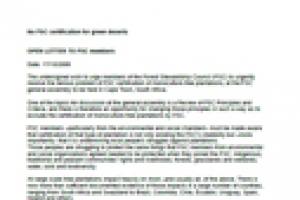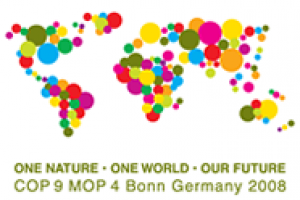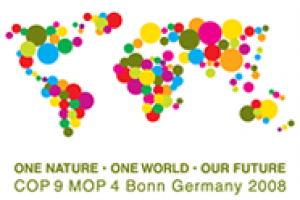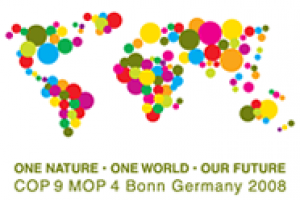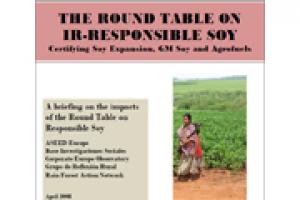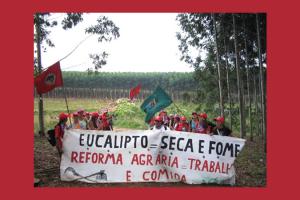On the first days of this month the Tasmanian people got to know of a deal that had been struck four months before between their government and the timber company Gunns. The deal, called the Sovereign Risk Agreement, provides that taxpayers should fund the company along 20 years with $15 million in case its wood supply is compromised by any reason. (1)
Large-Scale Tree Plantations
Industrial tree plantations are large-scale, intensively managed, even-aged monocultures, involving vast areas of fertile land under the control of plantation companies. Management of plantations involves the use of huge amounts of water as well as agrochemicals—which harm humans, and plants and animals in the plantations and surrounding areas.
Other information
27 May 2008
Other information
27 May 2008
Biofuels – bio-diesel oil extracted from plants to replace high cost fossil fuels – have become controversial as the biofuel plantations are taking away lands mainly used, in particular for food production, by local communities.
In Burma, the ruling military junta has embarked on a massive expansion of biofuel plantations through forced confiscation of lands as well as arrests, fines, and beatings of farmers.
Other information
27 May 2008
In November 2007, several representatives from World Rainforest Movement visited Komatiland Forests' operations at Brooklands in Mpumalanga province in South Africa.
Bulletin articles
27 May 2008
In Africa, agrofuel initiatives are proliferating in many countries including Zambia, where jatropha has been selected as the main crop to produce biodiesel while sugar cane, sweet sorghum and cassava are chosen for bioethanol.
Other information
23 May 2008
By the WRM
The CBD recognized in 1992 the “vital role of women in the conservation and sustainable use of biological diversity” and affirmed “the need for the full participation of women at all levels of policy-making and implementation for biological diversity conservation” (Preamble; paragraph 13).
In spite of that, women have remained as invisible as ever within the deliberations of the CBD’s conferences of the parties.
Action alerts
19 May 2008
Press release - Two open letters addressed to the delegations taking part in MOP and COP
The 9th Conference of the Parties of the Convention on Biological Diversity and the 4th Meeting of the Parties to the Cartagena Protocol on Biosafety are taking place this month in Bonn, Germany.
Action alerts
19 May 2008
To the Official Delegations of the IV Meeting of the Parties of the Cartagena Protocol on Biosafety (MOP-4) and IX Conference of the Parties to the Convention on Biological Diversity (COP-9)
Dear Sir / Madam,
Action alerts
19 May 2008
The ninth meeting of the Conference of the Parties (COP 9) of the Convention of Biological Diversity is taking place in Bonn, Germany, from 19 to 30 May 2008. COP 9 will include a high-level ministerial segment organized by the host country in consultation with the Secretariat and the Bureau (from 28 to 30 May).
Other information
30 April 2008
Certifying Soy Expansion, GM Soy and Agrofuels
ASEED Europe, Base Investigaciones Sociales, Corporate Europe Observatory, Grupo de Reflexión Rural, Rain Forest Action Network - April 2008
Bulletin articles
28 April 2008
In Brazil there are two conflicting models: that of the large monoculture plantations (ranging from eucalyptus, soy-beans and rice to sugar-cane), on lands held by a few large companies; and that of the peasant, indigenous and landless communities that build collective and diverse productive spaces and demand the historically promised agrarian reform.
Bulletin articles
28 April 2008
The municipality of Puerto Wilches, located in the Central Zone defined by the Agricultural Plan for the Implementation of the Biodiesel Programme, is home to much of the agricultural activity in the department (province) of Santander. According to the Agricultural Plan, there are roughly 21,000 hectares of oil palm plantations in the municipality, representing 91.7% of the department’s palm oil output.
Bulletin articles
28 April 2008
The Palmeras del Ecuador Company was established in the Ecuadorian Amazon, in the Province of Sucumbios, Shushufindi Canton, at the end of the seventies.
The former Institute for Agrarian Reform and Settlement (Instituto de Reforma Agraria y Colonización - IERAC) granted a concession to the company of 10,000 hectares of land, considered to be “waste land,” deliberately ignoring that these were ancestral lands of the Indigenous Siona and Secoya peoples and nationalities. This led to their almost complete extermination because of the occupation of their lands.

